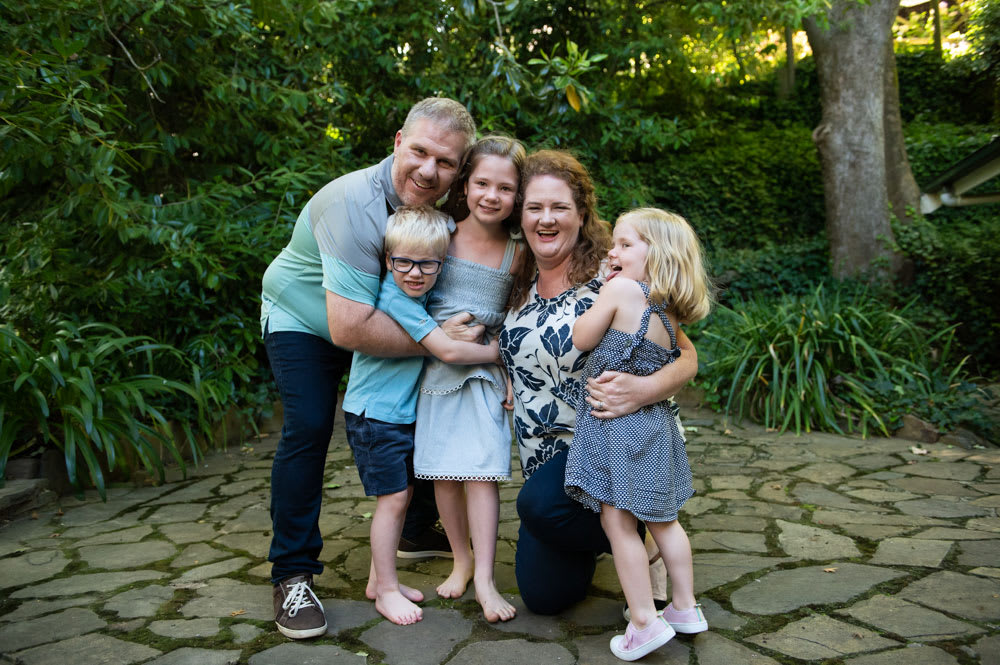Conquering financial stress: How to stress less about money
Mum and dad of three Alyssa and Pete found themselves overcome with work, looking after the kids and keeping their house in order that their financial situation began to slip. They became stressed about money and their money problems continued to see no signs of improvement. Financial stress and the emotional demands that come with money take a toll on all aspects of our life, especially our overarching health and wellbeing , with recurring bills, financial obligations and debt being main contributors.
In this article, we explore Alyssa and Pete’s journey as they recognised the signs of financial stress and sought help to get back on track.
Stressed about money
Alyssa is someone you can’t imagine failing at anything but she admits that it was mainly her responsibility when their finances began to slide. “The financial stuff was the stuff I let go of first,” she says. “I’ve always said that I can be really, really good at my job or really, really good at home, but I can’t be really good at both. So, while I was completely in control of everything at work, some things at home started falling over.”
Alyssa explains that she would get bills, make a mental note to pay them and then completely forget about them until an overdue notice arrived. She had no spare time for cash flow management or budget planning. When big bills arrived, such as car servicing, Alyssa and Pete would have to pay for it with a credit card. As a result, they had more credit card debt than they could handle.

According to a survey from Finder as of December 2021, 72% of those interviewed could successfully manage their finances without a credit card and that the average credit card purchase was $107.47. What these numbers suggest is that smaller purchases (such as car servicing or other recurring expenses) can be managed if budgeted appropriately ahead of time.
The same survey also pointed out that the most common reason for taking out credit cards is for emergencies (41%), whether that be to handle them or to keep in case of one. Life and finances can be full of surprises, so taking charge of your finances, getting ahead and putting away an emergency fund is a great way for how to stress less about money and will go a long way to avoid the added expenses associated with credit cards, namely, interest charges.
Alyssa tried to get on top of things but found that her plans kept being derailed by unexpected expenses or poor planning. “If someone was to ask how much we earned,” she says, “they’d think it was good money and we should have been much more comfortable than we were. We just had no sense of what was really going on.”
She continues, “It was ridiculously overwhelming. I remember sitting at my desk one afternoon … and I was looking at this pile of papers [bills] and then looking at my bank account and the two didn’t match up. It was completely our own doing. We were responsible for it … But it was just one more thing that I didn’t have the mental capacity to manage. It was too much for me.”
Combating money problems
Alyssa is not alone. According to Canstar’s August 2021 national sentiment checker survey, 95% of the participants revealed that they were experiencing financial stress. When Alyssa was at her wit’s end and finding herself overwhelmed with money problems, she decided to call MyBudget. “The person on the phone was just amazing. The first thing she did was reassure me and said ‘you’ve actually done the hardest thing, which is just to pick up the phone.’ And I decided at that point in time that I was going to be completely honest about everything.”
Alyssa and Pete booked in for a free budget appointment with an expert money coach and went through their finances in detail. From there, their customised budget plan was created for them that showed them exactly where their money was going for the next 12 months. Essentially the budget gave each and every dollar of theirs a job. MyBudget manages their personal budget for them.
from money worries
Start today with a FREE no obligation appointment
This means that their income was automatically organised into streams and their savings and bills were paid directly from their budget. When they made a change to their budget, they instantly saw how it affects their future payments and savings. They know exactly where their money is going, how much they can afford to spend and the quickest path to their financial goals. With the ongoing help of an expert money coach, they can also model different budget scenarios, which means they know they’re making the most of every cent.
But how soon did Alyssa notice that her mental load was relieved? “Immediately,” she answers. “The effect was instant. I felt that I was much more in control. I had so much more visibility and I liked the boundaries. The boundaries help to relieve the mental load because I know where the cut-off is.”
Tammy’s tips on how to stress less about money
For over 22 years, MyBudget founder and director Tammy Barton and her team at MyBudget have been helping people reduce financial stress by transforming their money.
Tammy notes that your finances are only as good as your systems. “When it comes to money, there’s a popular idea going around that you don’t need a budget–all you need to do is write your financial goals down on the back of a napkin. But goal setting is only part of the picture.”

Tammy continues, “The reality is that you don’t rise to the level of your goals, you rest on the level of your systems. That’s why MyBudget clients experience such high levels of success–because they have a proven, stress-relieving, money-saving system and a team of budgeting experts on their side to help them achieve their goals.”
Tammy’s other tips on how to overcome financial stress
Automate your finances as much as possible
Set up a direct transfer or ask your payroll to distribute your savings and spending money into separate accounts.
Open a separate account for your savings
Don’t let your savings get mixed up with money earmarked for bills and living expenses. Keep the funds separate to avoid accidental overspending.
Some banks offer special high interest rate savings accounts, allowing your money to generate interest while it’s sitting there.
Build up an emergency fund
Build flexibility into your budget by having a surplus of savings to fall back on. You can build up your savings over time or set aside a one-off payment, such as your tax refund, for this purpose.
This goes back to having some cash set aside for emergencies so you’re not tempted to take out a credit card. The goal is to get ahead of your finances and stay ahead.
Create a household budget
Make sure that your budget includes all of your income and expenses over a 12-month period. This is essential to ensuring that you don’t get surprised by big, infrequent bills, such as car registration and servicing.
Talk about money with your partner
The strongest couples take a team approach to money management and household responsibilities. It’s great to talk about your financial goals, big and small.
Are you ready to take charge of your life and free yourself from financial stress? Enquire online or call us on 1300 300 922 and start transforming your money today.
